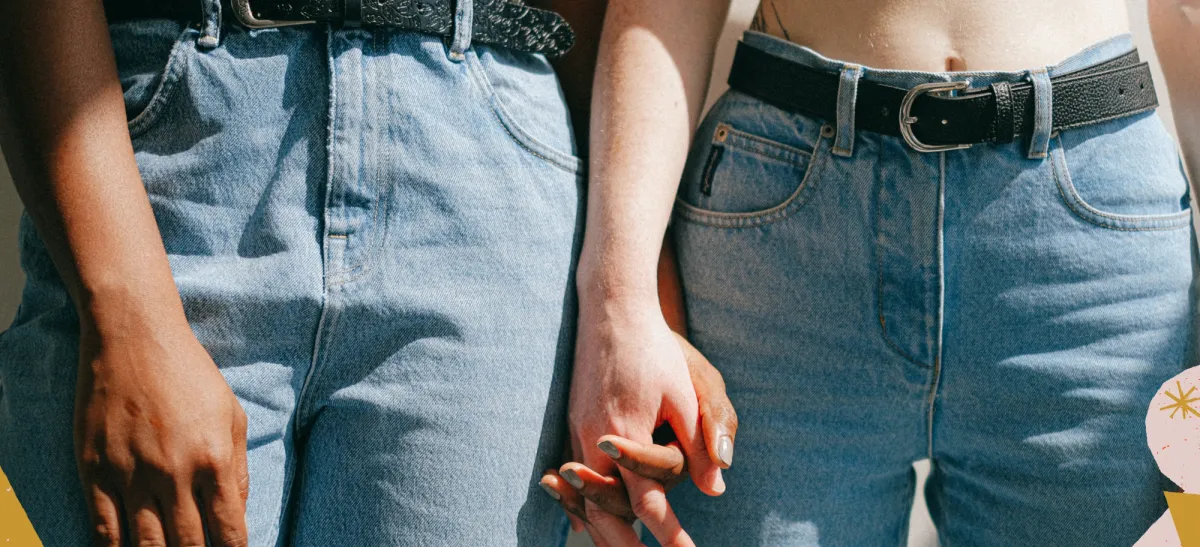Why Bi+ Representation Still Matters So Much
Bi+ erasure takes many forms, and I’m getting tired of constantly fighting for my identity to be recognised and taken seriously.

Access the Audio Read version of this article directly on Spotify for Podcasters.
“Despite consistent debunking, certain stereotypes about bi+ people also still abound. The false beliefs that we are incapable of being faithful, more likely to cheat, or more likely to spread STIs are incredibly common. While it hurts when straight people say these things, it feels much worse when it comes from within the queer community. And sadly, it often does.”
Every few weeks, the internet tells me I don’t exist.
I’m a bisexual woman in a monosexual world, and that means I am constantly fighting for my identity to be recognised and taken seriously.
Bi+ erasure takes many forms. More so than any other orientation, we bi+[1] folks face demands to “prove” our identity (often by disclosing our sexual histories.) If we refuse these invasive questions, or if our answers aren’t to the asker’s satisfaction, it is taken as proof that we are not really bisexual. Many people still believe that bisexuality is a pitstop on the way to identifying as gay or lesbian, rather than a complete and complex identity in its own right.
As recently as summer 2020, studies were still being carried out to determine whether bisexual people exist (Source: PNAS). To anyone who has identified as bi for any amount of time, the premise of this study and others like it is absurd. Of course we exist, we want to say. We’re here! We’ve always been here!
Ironically, the very existence of bisexual erasure is also used against us. We are accused of hiding behind pretended heterosexuality or “straight passing privilege” when we date a person of a different gender. Every summer, heated debates erupt online about whether bi+ people have a place at Pride.
What I really want people – gay and straight alike – to understand is that bi+ invisibility isn’t a form of privilege. It’s a different flavour of oppression.
Bi people are at statistically greater risk for a number of poor health outcomes, including mental health struggles, than heterosexual and homosexual people. Some evidence suggests that internalised biphobia and lack of understanding around bisexuality are possible explanations (Source: EurekAlert).
When bi+ identities are invisible or dismissed, it becomes even harder for bisexual people to find the support, resources, and community we need. It also increases the sense of shame and isolation that many of us experience when coming into an understanding of our identity.
Instead of yet another study that uses a flawed understanding of bisexual attraction to prove or disprove our existence, I would love to see researchers doing work that could actually improve bi+ people’s lives.
Despite consistent debunking, certain stereotypes about bi+ people also still abound. The false beliefs that we are incapable of being faithful, more likely to cheat, or more likely to spread STIs are incredibly common. While it hurts when straight people say these things, it feels much worse when it comes from within the queer community. And sadly, it often does.
The most effective way to normalise bi+ identities and fight erasure is visibility. This means that every elected official or public figure who comes out as bisexual – from “Miss Great Britain” Jen Atkin to rugby star Levi Davis and US congressional candidate Mckayla Wilkes – helps to show the world the existence and diversity of our community.
Fictional representation matters, too. I was thrilled when Kat Edison, a main character on my favourite TV show The Bold Type, uttered the words “I might be bisexual” in season 4. Bi+ characters, from Daryl Whitefeather in Crazy Ex Girlfriend to Rosa Diaz in Brooklyn 99, improve bisexual visibility and give bi+ folks representations of our experience that we can finally relate to. My own coming out journey might have looked different if I had seen characters like these when I was in my teens.
Sustained visibility and positive representation are how we fight stereotypes and erasure. I’m glad to see bisexuality coming more and more out into the open.
[1] I use bi+ as an inclusive term for people attracted to more than one gender. This can include those who identify as bisexual, pansexual, omnisexual, and so on.





